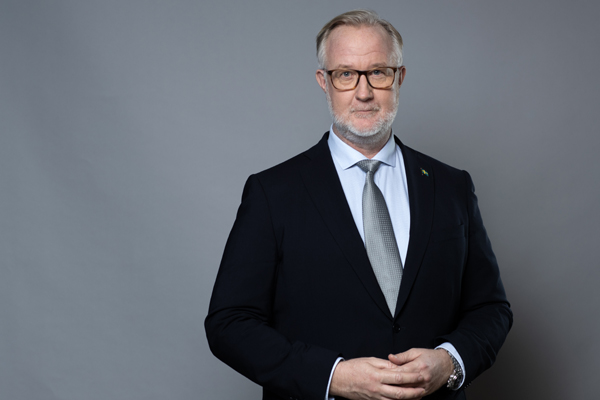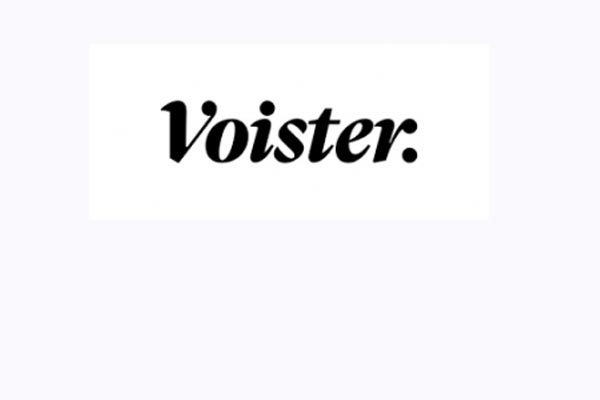EDEN Jönköping – 2017
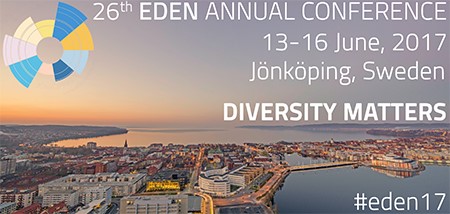

Pre conference hosted by SADE, the Swedish Association for Open and Distance Learning
DIGITAL TRANSFORMATION AND DIVERSITY IN A SWEDISH CONTEXT
Download program here !
The pre- conference will take part within the research environment CCD at the School of Education and Communication, Jönköping University with the support of Destination Jönköping.
Time: Thuesday 13th January 2017 12.00pm- 17.00pm CET
Venue: Jönköping University, room to be confirmed
Gjuterigatan 5, 553 18 Jönköping, Sweden
The pre- conference is hosted by SADE, the Swedish Association for Open and Distance Learning, and is free of charge
Program:
12.00-12.30 A small lunch will be served, in connection with the meeting room.
12.30 -17.00 pm CET, according to program:
12.30-15.00
|
Plenum A warm welcome address from EDEN Airina Volungeviciene, President EDEN (10 min)
A warm welcome address from Jönköping University Ylva Lindberg, host and responsible for EDEN 2107 (10 min) Jönköping University
Digital transformation and diversity in a Swedish context, and about SADE Ulf Sandström, President (30 min) Swedish Association for Open and Distance Education (SADE) https://www.sverd.se/swedish-association-for-distance-education/
A digital agenda for higher education – what would Google do? Anders Söderholm, Director General (30 min) The Association of Swedish Higher Education (SUHF)
The Swedish Association of Local Authorities and Regions, SALAR (Sveriges Kommuner och Landsting (SKL) (to be confirmed)
Technology enhanced learning to support inclusion and integration of migrants Henrik Hansson (30 min) Stockholm University
Mobile language learning applications for integration of Arabic speaking migrants in Sweden Linda Bradely (30 min) AMIF (Asylum-, migration, and integration fund) Chalmers Technical University, Sweden
Moderator Ebba Ossiannilsson |
Short break, Swedish FIKA
15.15-16.15
Track 1 Track 2
|
Open and Lifelong Learning: Academy, School and Learning Centres Themes for the speakers to be confirmed
Higher Vocational Education (HVE) (Yrkeshögskolan, YH) (15 min)
The Network for learning centers in municipalities (Nätverket för kommunala lärcentra, NITUS) (15 min) Jerry Engström
Swedish organization for e-competence (Riksorganisationen för
Digital tools – a path to integration for immigrants Speaker to be confirmed
Swedish EdTechIndustry; CEO Jannie Jeppesen (15 min) |
E-Learning and the Swedish Business sector Themes for the speakers to be confirmed
Dugga Patrik Nilsson
ItsLearning Collaboration and co-authoring – in real-time Toni Dimovski
Canvas Martin Bergström
Blackboard Dan Nygren
|
16.15-17.00
|
Panel discussion with all speakers including Airina Volungeviciene, President EDEN and a dialogue with participants
Moderator Ebba Ossiannilsson |
Get to know the invited speakers Jönköping, June 13, 2017
| Photo | Name + Speach title | Bio |
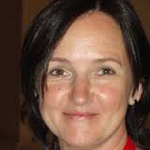  |
Airina Volungeviciene, President EDEN
|
Airina Volungeviciene has been working among leading researchers, methodology specialists and policy makers in the area of distance learning development in Lithuania since 1998. Having graduated her first master degree at Vytautas Magnus University (Lithuania), she spent 11 years working at Kaunas University of Technology as distance learning methodology specialists and researcher. She coordinated numerous international projects in the area of distance education, worked on national study and strategy for distance learning network development in Lithuania, promoted methodological activities in Lithuanian Distance and eLearning (LieDM) network. |
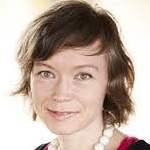  |
Ylva Lindberg, Jönköping University |
Ylva Lindberg is an Associate Professor in Comparative Literature, and the Dean of Research at the School of Education and Communication, Jönköping University. She has used virtual worlds in her university courses, in order to explore subcultures and literary sub-genres. In her book, De la Belle époque à Second Life (EPU(Cyber) 2013), Lindberg explores learning and literacy in virtual worlds from historical, artistic, literary and digital perspectives. Her current project, Dive iN – Diversity as Normality, focuses on communication and interaction between teachers and students in upper secondary school. The aim is to explore how diversity is made (in)visible in communicative situations and contexts. The data cover synchronous, asynchronous, analogue and digital communication and interaction, which allows for observations of how time, space and place become important criteria in order to understand how diversity emerge and can be used as a resource in the classroom. |
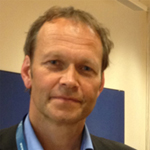  |
Ulf Sandström SADE, President |
President Swedish Association for Distance Education. MSC Uppsala University, Project leader and distance education tutor and developer at department for working life at Harnosand municipality. Coordinator for the Baltic and Nordic network Boldic for supporting open and distance education in the region. Project leader the Course hub Open educational resources OER , free of use for anyone. Previous project leader for the e-academy and developer at National Agency for flexible learning. |
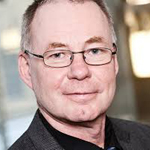  |
Anders Söderholm, The Association of Swedish Higher Education (SUHF), Secretary General) |
Previous rector of the Mid Sweden University and was a professor in Business administration at Umeå School of Business. Söderholm obtained his PhD from Umeå University in 1991, with his thesis on organization of local industrial policies. On 2005 he became professor of business administration. Söderholm has also been a guest researcher at Stanford University, Royal Institute of Technology and Åbo Akademi University and is the chairman of The Swedish Project Academy. He was the rector of the Umeå School of Business between 2000-2003 |
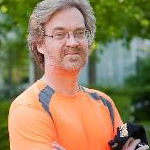  |
Henrik Hansson Stockholm University
|
Henrik Hansson is an associate professor at the Department of Computer and Systems Sciences, Stockholm University. He is the coordinator of the research group ICT for Development and also a member of another research group Technology enhanced learning. He is a conceptual developer of the SciPro system and coordinator of more than 350 thesis writing students and more than 70 supervisors yearly at the department. He has also been an ICT-advisor and developer at the Swedish Agency for International Development Cooperation, Sida Civil Society Centre. He was a Senior Lecturer at the Department of Education, Stockholm University, Senior Lecturer at the Institute of International Education, Stockholm University, Senior Adviser at the Swedish Net University Agency, and a Research and Development Adviser at the Swedish Agency for Distance Education. Current research activities include two EU-projects My University focused on democracy processes in higher education and We.Learn.It, which is focused on creativity and innovation in European schools. Furthermore within the framework of two large scale Sida-funded projects, one targeting decision makers in 12 developing countries ICT and Pedagogical Development and the other with the aim to support capacity building in Rwanda (planning stage), a large number of studies are carried out. Another long-term research cooperation is established with University School of Computing, Colombo University, Sri Lanka. Earlier projects with Sri Lanka have been funded by Sida and EU, currently we conduct studies funded by Stockholm University’s fund for international research cooperation. Link to publications |
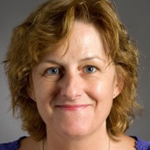  |
Linda Bradely Chalmers Technical University, Sweden
|
Linda Bradley is a Senior Lecturer in higher education pedagogy at the Department of Education, Communication and Learning at University of Gothenburg, working with research and development at the Pedagogical Development and Interactive Learning unit. Currently, Linda is a project leader at Chalmers University of Technology, for the Minclusion project funded by AMIF (Asylum-, migration, and integration funden). The aim is developing mobile learning applications for newly arrived Arabic speaking migrants to Sweden with a focus on pedagogical approaches in digital technology for learning Swedish and about Swedish culture. The project is devoted to digital language development and intercultural communication training. |
|
REK Speakers to be confirmed |
||
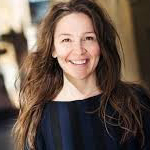  |
SwedishEdTech Industry Jannie Jeppessen |
CEO SwedishEdTech Industry |
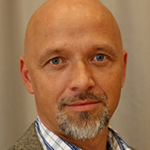  |
Myndigheten för Yrkeshögskoleutbildning (MYH) Rafal Tomaszewski |
|
|
The Network for learning centers in municipalities (Nätverket för kommunal lärcenter NITUS) Jerry Engström |
||
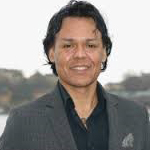  |
Dugga Patrik Nilsson |
CEO Dugga |
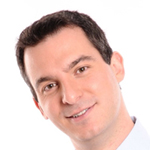  |
ItsLearning Toni Dimovski |
Toni Dimovski is the International Sales Manager at Itslearning. He is a passionate thought leader in online-educational technologies and works with Higher Education institutions and schools all over the world. Mr Dimovski holds a BSc in Informatics and a BA in English from Lund University, Sweden. |
|
Blackboard Dan Nygren |
||
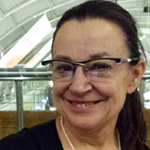  |
Moderator Ebba Ossiannilsson, SADE, V President, EDEN EC |
Ebba Ossiannilsson, is the V President forSADE, as well as for REK. She is the CEO of Ossiannilsson Quality in Open Online Learning (QOOL) Consultancy. Ossiannilsson was awarded the EDEN Fellow title in 2014, and she became Open Education Europa Fellow in 2015. Since 2016 she is an ambassador for GLOBE, the Community of digital learning. In 2017 she is nominated to Open Education Europa Ambassador. Ossiannilsson is an expert quality reviewer, researcher, and consultant within the areas of open, online, flexible, and technology enabled teaching and learning (OOFAT), including OERs and MOOCs. She is frequently invited as keynote speaker for conferences. She is in EDEN EC, and is leading the SIG on TEL and Quality, and she is in the ICDE Focal Points of Quality. Her research comprises over 200 publications. She earned her PhD at Oulu University, Finland in 2012 with a dissertation on Benchmarking e-learning in higher education. |
|
Facts about Sweden The population of Sweden is ten million people, of whom about two million are under the age of 18. 85 percent of them live in cities. Sweden is a very multicultural country: 15 per cent of Swedes were born in another country, while about one in five children in Sweden has a family with roots in another country.
The capital of Sweden, Stockholm, is also the country’s largest city, with more than 930,000 inhabitants. Other large cities are Gothenburg, in western Sweden (population 550,000), and Malmö (population 300,000) in the south. Uppsala and Lund are well-known university cities. Less than three per cent of Sweden’s land area is built up and forests cover 69 per cent of the country. Sweden is long – about 1600 kilometres from north to south. Education in Sweden is mandatory for all children between age 7 and age 16. Every fourth person in Sweden is highly skilled and educated (University level). Overall, women have higher education than men. It is particularly evident in the ages between 25-34. In Sweden there are approximately 50 HEIs offering higher education in various forms. There are a number of other agencies involved in the Swedish higher education sector. 27 percent of the Swedish students study at a distance. Most of them assimilate their studies online. |
|
Facts about the Swedish Association for Distance Education (SADE)
SADE, founded in 1984, is a professional association for distance, and flexible learning in Sweden. SADE’s members are from the entire educational sector, from K-12 to higher education. Adult education, business and the private sector are also represented.
SADE aims to: ● stimulate and promote the development of knowledge in the areas distance and flexible learning and also transformation due to the increased digitization ● broaden knowledge and participate in the development of flexible and distance learning ● initiate exchange of experiences and cooperation between members and create open communities by organizing conferences, seminars and webinars and other formal as well as informal meeting places ● promote international exchange and cooperation. ● advise the governing bodies and actively participate in the national debate in the area
SADE publishes a newsletter four times a year, with articles on distance and flexible learning and other relevant national and international information, and on national and international conferences.
SADE arranges two annual conferences, one of which is the annual conference. The conferences highlight current and interesting themes that involve the members.
SADE interacts with a number of international organizations, such as the ICDE International Council for Open and Distance Learning (ICDE), and EDEN European Distance Education (EDEN), and the European Association for Distance Learning (EADL). SADE is a partner in several nordic/boldic and international projects.
|



